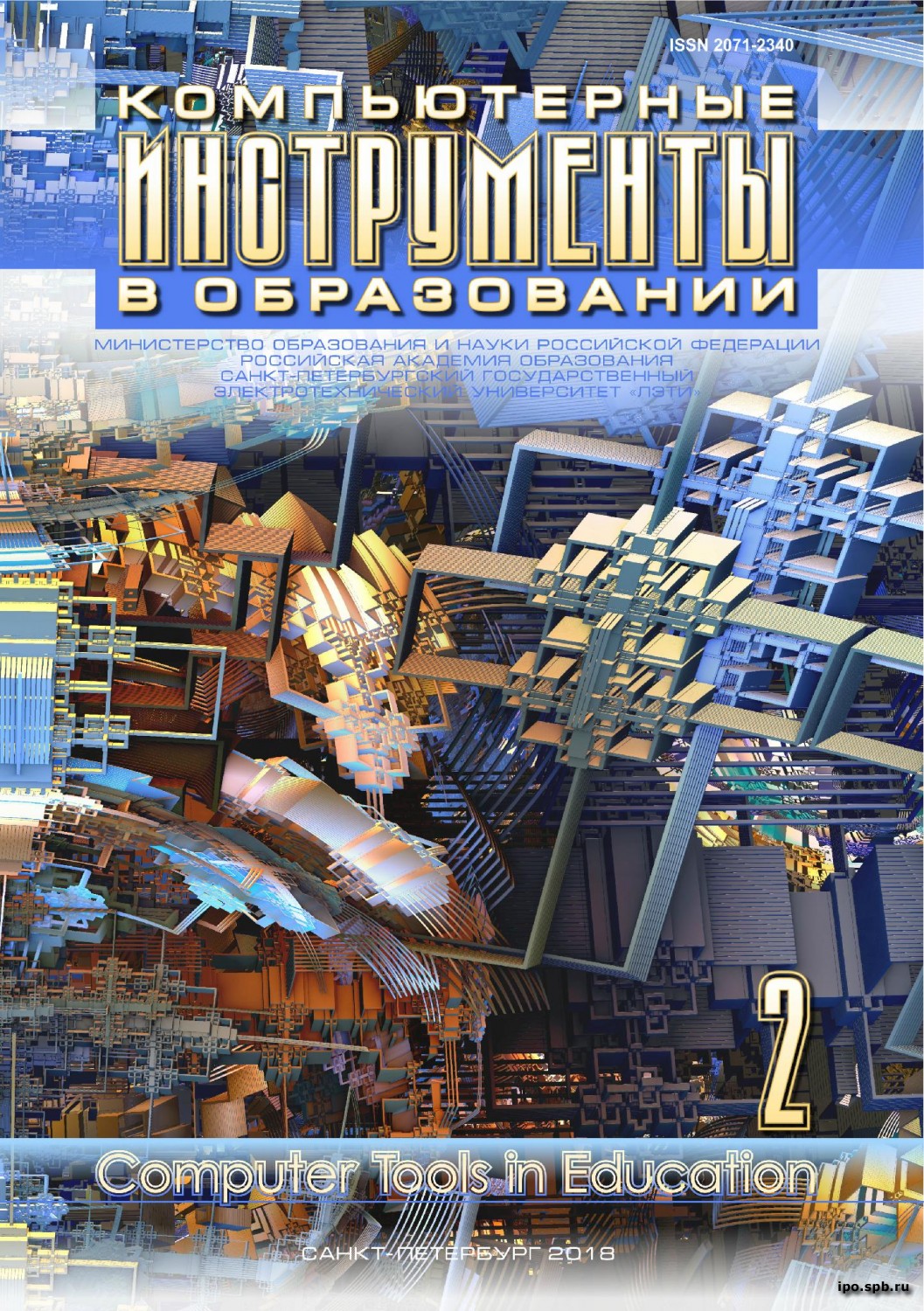Analysis of the understanding of the material of theoretical informatics in competitions and olympiads in informatics
Abstract
Contests and Olympiads should be considered not only as a way of comparing the students' levels of training. They can be regarded as a different way of organizing the mental activity of participants. Different types of tasks initiate various types of intellectual activity among students. The Olympiad tasks differ from ``school'' ones by non-standardness, a combination of the understandability of the formulation and the non-obviousness of the solution, the possibility of various approaches to solving the problem. At the same time, the variety of contests and Olympiads raises the task of investigating and classifying them, focusing on supporting different styles of thinking. In this paper, we carry out an analysis of contests and Olympiads in informatics, aiming at identifying aspects of the student's intellectual activity, which are not sufficiently evaluated at school. The Olympiad in Discrete Mathematics and Theorethical Informatics is at the intersection of the two sciences. The article deals with the problems encountered by the organizers of competitions in mathematics and computer science and demonstrates some ways to solve them using the example of the Olympiad.
References
Order of ministry of education and science of Russian Federation at 30.08.2017 No866 “Of setting the list of Olympiads of schoolchildren for 2017/18 school year. URL: https://rg.ru/2017/09/27/minobrnauki866-dok.html (in Russian).
Okulov S. M.: Informatics. Schoolchildren intellect development. Moscow: BINOM. Laboratory of knowledge (2005) (in Russian).
Anisimova S. A.: Discoveries are made due to the talent of singles! Scienti1c and methodical electronic magazine “Concept” (2013) (in Russian).
Tseitin G. S.: HEXPLORE. Computer Tools in Education vol. 6, pp. 84–87 (1998) (in Russian).
Van der Wegt W.: Bridging the Gap Between Bebras and Olympiad: Experiences from the Netherlands. Olympiads in Informatics, Vol. 10, pp. 223–230 (2016).
Dagene V., Stupuriene G.: Bebras – a Sustainable Community Building Model for the Concept Based Learning of Informatics and Computational Thinking Informatics in Education, vol. 15, no. 1, pp. 25–44 (2016).
Pozdniakov S. N., Posov I. A. Puhkov A.V., Tsvetova I.V.: Science Popularization by Organizing Training Activities Within the Electronic Game Laboratories. International Journal of Digital Literacy and Digital Competence, 3(1). January-March. pp. 17–31 (2012).
Maytarattanakon A., Posov I. A.: Automation of distance contests based on research problems in mathematics and informatics. Computer Tools in Education, vol. 6, 45–51 (2014) (in Russian).
Wing, J. M. Computational thinking. Commun. ACM 49, 33–35. (2006).
Wing, J. M. Computational thinking and thinking about computing. Philosophical Transactions of the Royal Society A: Mathematical, Physical and Engineering Sciences. 366 (1881): 3717. (2008).
Papert S.: Mindstorms: Children, Computers, and Powerful Ideas. Basic Books, Inc., Publishers / New York (1980).
Pozdniakov, S., Gaisina, S.: New trend in Russian informatics curricula: integration of math and informatics. Local proceedings of the 7th International Conference on Informatics in Schools: Situation, Evolution and Perspectives, p. 91-100 (2014).
Akimushkin V. A., Pozdniakov S. N., Chukhnov A. S.: Constructive Problems in the Structure of the Olympiad in Discrete Mathematics and Theoretical Informatics Olympiads in Informatics, Vol. 11, pp. 3–18 (2017).
Baker E., Dickieson J., Wulfeck W., O’Neil H.: Assessment of Problem Solving Using Simulations 1st Edition Rutledge (2016).
Fan-Ray Kuo, Nian-Shing Chen, Gwo-Jen Hwang: A creative thinking approach to enhancing the webbased problem solving performance of university students Computers and Education, vol. 72, pp. 220-230 (2014).

This work is licensed under a Creative Commons Attribution 4.0 International License.







